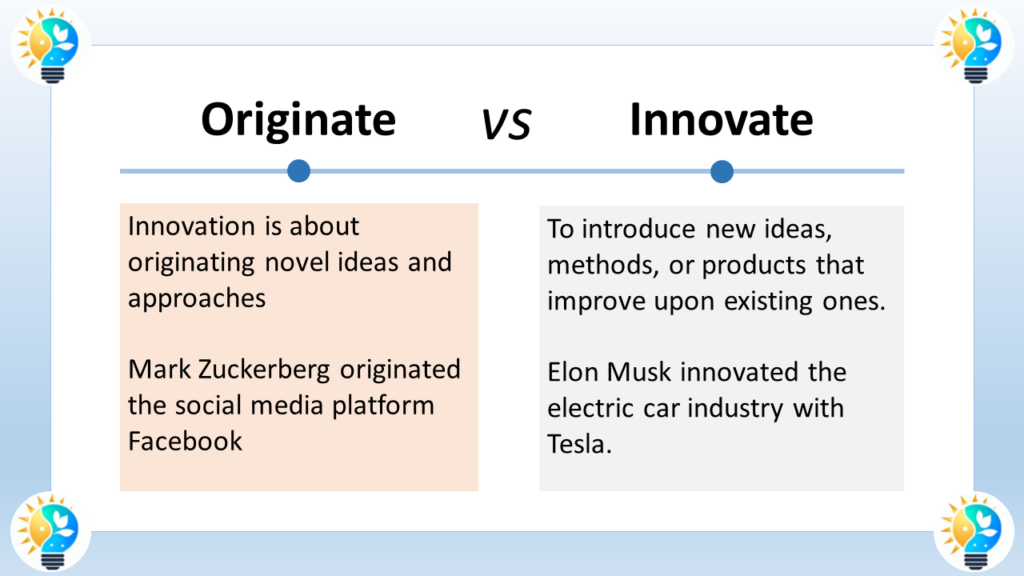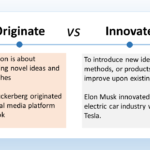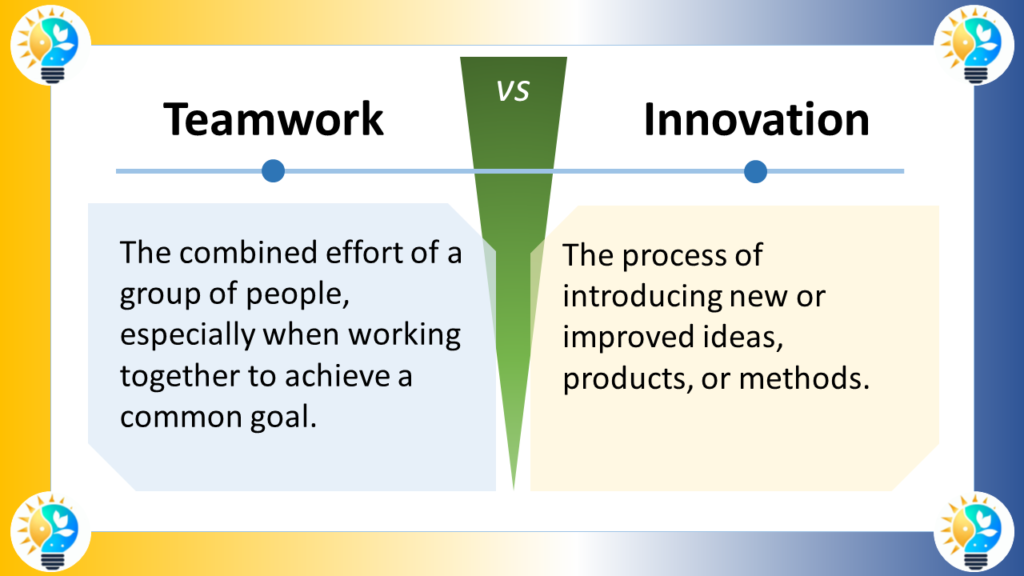Originating involves creating something entirely new, while innovating involves improving upon existing ideas. Originating is often a one-time event, while innovating is an ongoing process.

The Relation Between Innovate and Originate
Defining the Key Terms
Innovate
To innovate means to introduce something new, like an idea, a technology, a method or product that is the result of creativity and aimed at solving problems in a new way. It involves turning a new invention into a product or service by applying an entrepreneurial process to make improvements or turn ideas into commercial realities.
Originate
To originate means to come into existence or to be the starting point from which something derives or develops. It refers to the source or beginning of something. When something originates, it emerges or springs into being for the first time.
More Synonyms on innovation, innovate and innovative:
- Adapt
- Advance
- Change
- Create
- Cultivate
- Devise
- Develop
- Discover
- Disrupt
- Evolve
- Experiment
- Fashion
- Generate
- Imagine
- Initiate
- Introduce
- Invent
- Modernize
- Originate
- Pioneer
- Progress
- Prototype
- Radicalize
- Reform
- Reinvent
- Renew
- Revolutionize
- Restructure
- Set Trends
- Transform
- Upgrade

Innovation is considered as a driving force in progress.
It includes the introduction of novel ideas, methods, or products that bring positive change and advancement.
For more information about innovations, check our glossary
The Relationship Between Innovating and Originating
There is a clear distinction between innovating and originating, though the two terms are often used interchangeably. While originating refers to the very beginning or source of something new, innovating takes an idea or invention that has originated and improves it further through a process.
To originate means to give rise to or be the starting point of something novel that did not exist before. An idea, concept or technology has to originate from an individual, team or organization as the foundation from which further development occurs.
In contrast, innovating builds upon ideas and concepts that have already originated. It involves taking the original source, whether an invention, problem or opportunity, and enhancing it through refinement, application of new knowledge or combination with other ideas and technologies. The goal of innovating is to transform an originating idea into practical solutions to drive social or economic value.
For example, the Wright brothers are credited with originating the concept of powered, controlled flight in their early experiments and aircraft designs. However, it was through continuous innovation – making adjustments, testing new designs and refining control methods – that airplane technology developed into what it is today.
Another example is how smartphones originated from earlier mobile phone technologies, but it was through innovation – adding features like touchscreens, apps, cameras and Internet connectivity – that completely changed the mobile experience.
So in summary, while originating refers to giving rise to something novel for the first time, innovating takes those originating ideas and builds upon them through improvements, new applications and combinations to develop impactful solutions. Both processes are essential to progress, with originating laying the foundation for continuous innovation.
Conclusion
To conclude, there is an important distinction between originating and innovating though the terms are often used interchangeably. Originating refers specifically to creating or being the source or starting point of something entirely new. In contrast, innovating involves taking an originating idea or invention and enhancing it through refinements, new knowledge or combinations to solve problems or create value. Both originating breakthrough concepts and continuously innovating to improve them are necessary for technological and social advancement.


